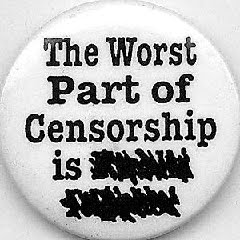How Pussy Riot Ended Up on Slacker Instead of Spotify

As the Internet lit up Friday in the wake of Pussy Riot’s sentencing to a two-year prison term for performing a song critical of Russian leader Vladimir Putin, you may have noticed (as we did) that although the group’s music was readily available on its MySpace page and YouTube, it was notably absent from iTunes and streaming services.
Well, that situation ended yesterday, when Slacker announced it added the tracks “Kill the Sexist,” “Putin Wet Himself,” (from Putin Wet Himself, copyright 2012), “Kropotkin Vodka” and “Deliver Pavement” to its catalog as well as its “Protest Radio” station. How an Internet radio service came to play a Russian band that has no commercially available music in the U.S. gets to the very heart of webcasting in the U.S.
An on-demand subscription service like Spotify or Rhapsody, or a download store like iTunes, would need to acquire the rights to commercial music from an intermediary — most likely a digital distributor — and ingest the digital files before being able to stream or sell them. This can be a slow process (see Rdio’s licensing deals with TuneCore and CD Baby two years after its U.S. launch) but ensures rights are respected.
While on-demand music services wait to ingest catalogs, webcasters ingest catalogs at will. A U.S. webcaster can stream a track that has not been commercially released. The statutory license given to webcasters allows them to pay a fixed performance royalty for any sound recording that meets the Copyright Act’s broad definition.
The Copyright Act states that a sound recording must be “distributed to the public under the authority of the copyright owner or the copyright owner authorizes the transmitting entity to transmit the sound recording” does not require the recordings to be either commercial releases or released in the U.S. And entertainment attorney Christian Castle explains, “there’s a very broad term of distributed.” As best as I can tell, if the song it out there in the public, it has been distributed according to Section 114.
As for the copies themselves, Castle says they are of more concern of the copyright holders then SoundExchange, the organization that collects performance royalties related to sound recordings. And rightly so, he notes. “SoundExchange does not concern itself with how the copies came to being. They concern themselves with the royalties being paid.”






